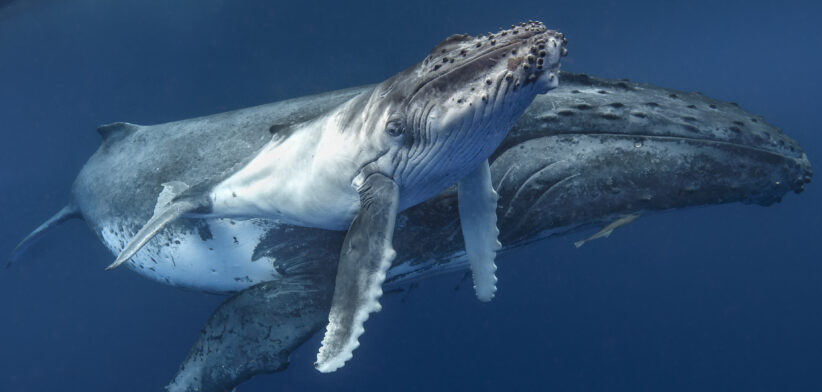Growing ocean noise levels are interfering with communication between marine animals and could have a future “catastrophic” impact on whale populations.
A study conducted by a team at the University of Melbourne revealed that ocean background noise intensity had increased 100-fold since the 1950s.
Senior Lecturer at the university’s School of Mathematics and Statistics Stuart Johnston said the rising noise had been linked to increased stress in marine life, stranding events and an inability to locate food or a mate.
His team modelled the potential impact of rising noise on whales based on it causing “solitude”, confusion and avoidance of high noise areas.
“If the primary impact of noise pollution is avoidance, the effect can range from mild to extreme,” Dr Johnston wrote in an article on the university website.
“If there are only small regions of high noise, migration will still occur, and the whales will simply skirt these regions.
“But as the noise continues to increase, these high noise regions become larger and larger, until ultimately the migration path is cut off and migration completely fails.
“In the wild, this would be catastrophic for that population of whales.”
Dr Johnston said there was no current evidence of migration failure for entire whale populations.
However, this was an example of what could happen if noise levels continued to increase unabated.
“Going forward, we expect further increases in shipping activity, resource extraction and offshore construction, each of which will contribute to additional ambient noise,” Dr Johnston said.
“Depending on the future level of noise, this impact could range from mild, where whales take a bit longer to reach their destination, to extreme, where migration fails completely.”
The full report is on the University of Melbourne website








